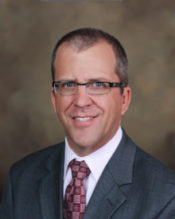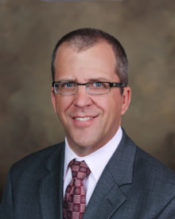Is the practice of medicine coming full circle?
As the administrator of a large medical practice, I believe it is.

For many wistful Americans, the image of the community physician making routine house calls is a lost icon, a symbol of nostalgia. In a simpler time, in a much more rural United States, often the local doctors knew all their patents well and may even have been paid in produce or poultry instead of money.
Those days are long gone, and house calls are a rarity in the medical profession, not the norm. With about 500,000 people living in the area where SouthCoast Health has offices, the notion of sending our 80 physicians out to make house calls is simply impossible.
But it is a time for reflecting about how we deliver our services and what the future of health care will look like.
We constantly ask ourselves: What is possible to improve the patient experience and our delivery of health care services in this day and age?
We start with the concept that medicine needs to adapt to the needs and schedule of the patient. We have to get away from the customary way that medicine has done things, which is that patients schedule appointments with a physician’s office between 8 a.m. and 5 p.m., Monday through Friday. We have to rethink that dynamic and move to an arena in which we provide access for the patient when it is convenient to him or her — and in a way that provides high-quality care.

There are a variety of ways that we are exploring to put this concept into action. Some are simple and common-sense. Some employ technology that is already available. Some would mean making relatively simple investments or upgrades in technology.
The first is to add the urgent care model to supplement our care. It’s no surprise to see the popularity of these services. If large medical practices don’t offer walk-in services with expanded hours, they will continue to see their patients go elsewhere — to standalone urgent care centers or to pharmacies and other businesses that house urgent care units. According to the Urgent Care Association of America, the United States has nearly 7,100 urgent care centers. Between 2008 and 2010, the United States added 300 urgent care centers per year, the UCAA said. That’s a veritable explosion.
If medical practices offer these types of services, their patients will see the benefits. The use of Electronic Medical Records (EMR) – which our practice adopted back in 2003 — allows any SouthCoast medical provider access to the in-house medical records for any SouthCoast patient. Urgent care businesses outside of a patient’s primary care doctor cannot offer this vital aspect. Furthermore, the SouthCoast provider who sees a patient at one of our urgent care sites can immediately update the shared medical record which is then available to the patient’s SouthCoast primary care physician.
Another step we’re taking is to allow existing pediatric patients to make online appointments through the use of a patient portal. We plan on expanding this service to other departments. Parents understand the anxiety of having their child fall ill after the pediatrician’s office has closed. In a 24/7 online world, there is no reason why a parent has to wait until the doctor’s office opens in the morning to schedule an appointment. Health care providers need to embrace simple and widely used technology while, of course, taking the prudent security steps along the way to protect patients’ private information.
Providing secure connections is a part of another innovation that is not far down the road: The use of smartphones or tablets to provide live video consultations. We need to strive to break down any barriers that prevent patients from seeing a provider and getting the services that they need.
This technology allows a worried mother the opportunity to have a live video consultation with a provider in the evening to make a decision about what the best course of action for her sick child might be. Should they visit an evening clinic? Should they go to the emergency room? The use of technology to do this can take the guesswork out of the equation on the patient’s side and significantly decrease the costs by eliminating unnecessary emergency room visits. Simply put, it’s more efficient in almost every conceivable way.

The health care of the future also will incorporate so-called “Big Data” and collaborative health care to improve patient outcomes. The data from electronic records has provided practices like ours with the opportunity to take an honest look at the quality of medical care we deliver and to examine ways to improve service. It also allows practices to see where patients may not be receiving the care they need and to reach out to those patients.
Incorporating medical records in this manner is one way that practices can qualify for Meaningful Use under the Affordable Care Act, as ours has. Practices must be very focused on evolving to become value-based health care systems. One of the benefits of data from EMR is that it has allowed physicians to truly understand how health care services are being provided: Where the cost is going and how they may be able to improve the quality of care for the patient.
One of our organization’s priorities is to make sure we are providing the best outcome for the patient in the most cost-effective manner. The vision to accomplish this will entail working much more collaboratively with other physicians and health care organizations in the community — even those outside of our own.
In the end, the goal is to make health care come full circle — for the health care of the future to resemble that of the past. Doctors might not make house calls as they once commonly did, but with virtual consultations, easier access for patients to make appointments and see a professional, it might feel more like it. In addition, the level of care, aided by technological gains, will far exceed that of the past. In some ways, it will be just like the past — only better.
John Marrero is the administrator of SouthCoast Health, an 80-provider physician-owned multi-specialty group in Savannah.

